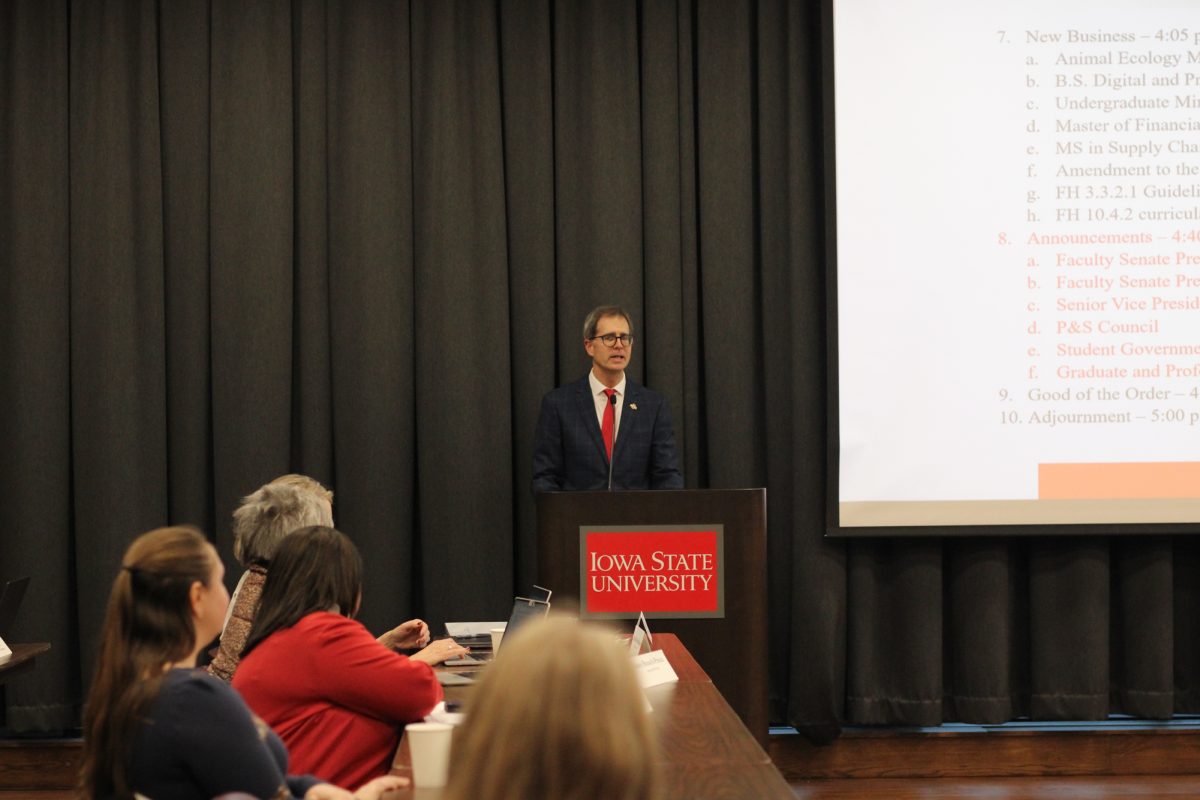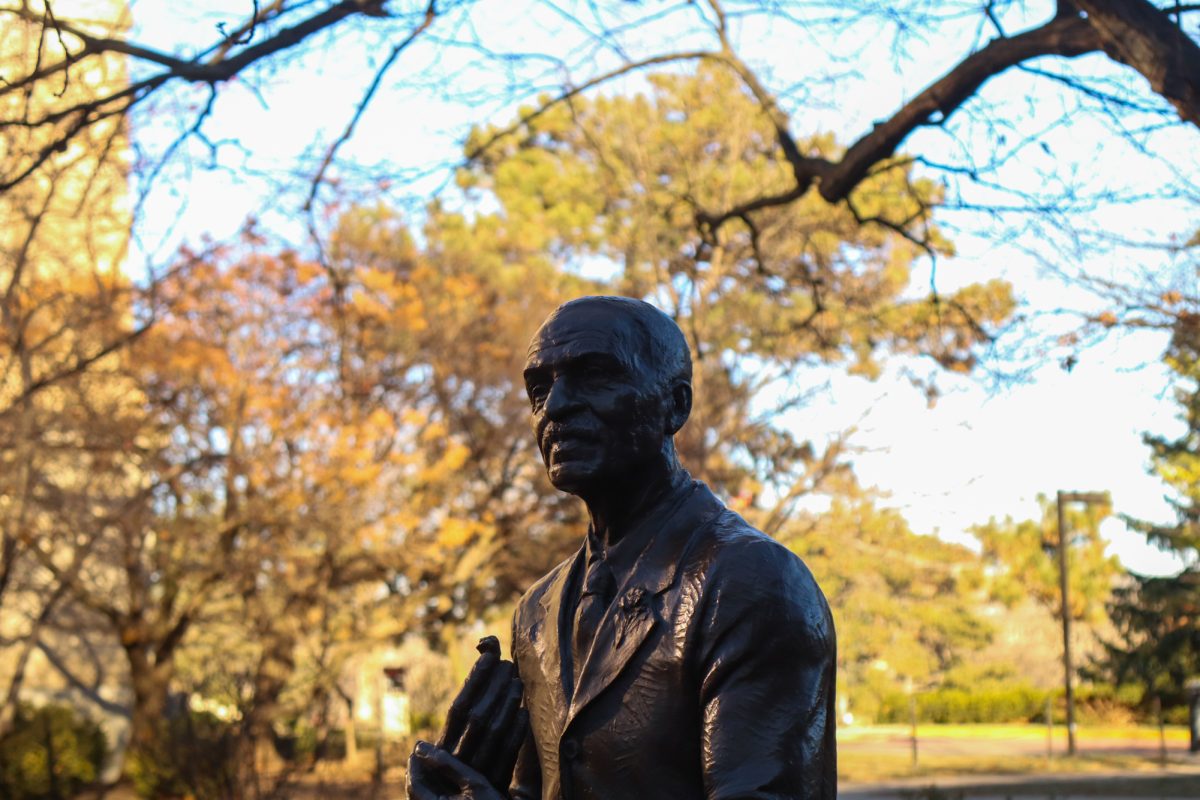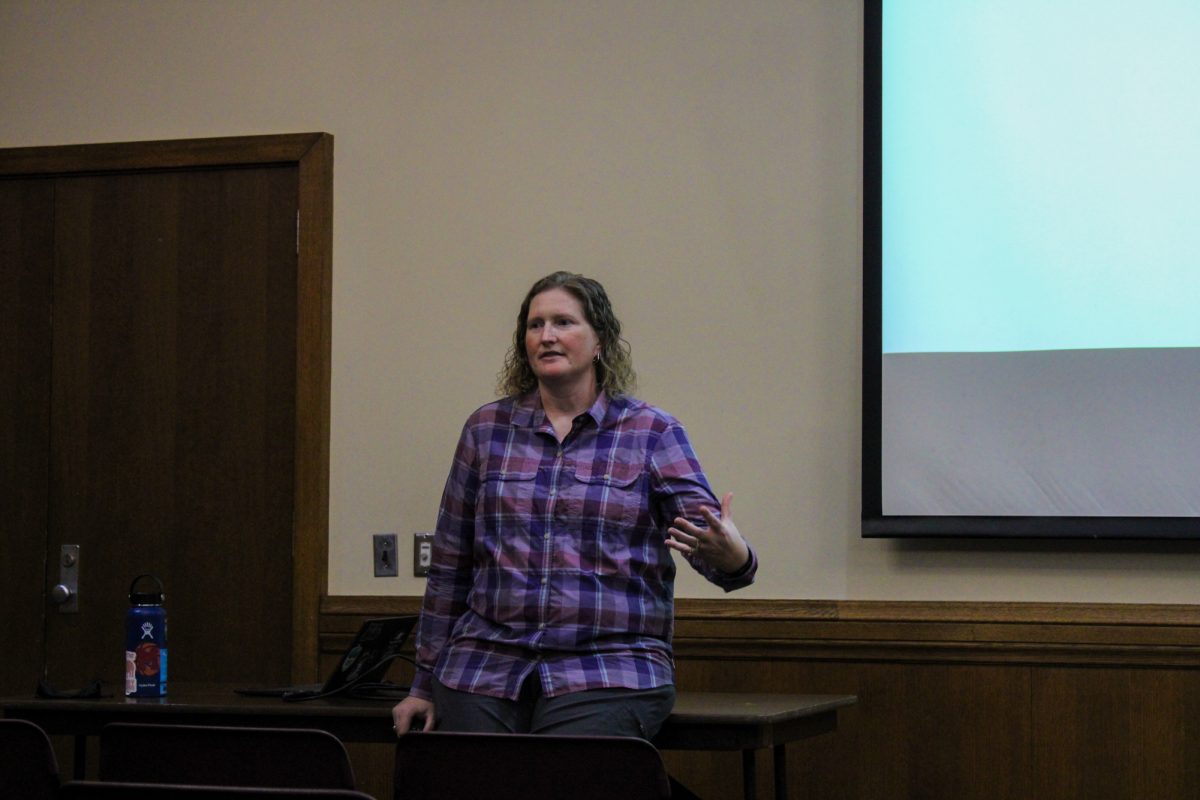First Amendment protections have provided one of the largest satire publications the liberty to publish crude statements credited to political figures, celebrities and others without any lawsuits, at least any that the head writer of The Onion, Mike Gillis, can remember.
In a Lecture Series and First Amendment Days event Wednesday, Gillis shared his experience writing for the publication, which he has contributed to for over a dozen years.
“Free speech requires that we tolerate an enormous amount of what I’ll call, for lack of a better word, bullshit, which is the lies and the half-truths and the punditry that swarm through our society,” Gillis said. “And we tolerate that in order to guarantee that we ourselves can speak our minds.”
Gillis highlighted a running interaction with former President Donald Trump, which started in 2013 before his political career began. The interaction started after The Onion ran an opinion column listing Trump as the author, titled “When You’re Feeling Low, Just Remember I’ll Be Dead In About 15 Or 20 Years.”
Trump’s legal team threatened action for publishing the column. The Onion continued to publish several more articles satirizing Trump, including one about his legal team years later.
“Free speech might seem to be coded to some of you as a libertarian or right-wing ideal and especially in recent years, but it really supports speech in general and activism and political action, left, right and center,” Gillis said.
Despite a threat from Trump’s legal team, and one about once a year from a major political figure, according to Gillis, he said he has no knowledge that there has ever been an actual lawsuit.
Gillis spoke to the elements of parody, saying that disclaimers can minimize the effect a story may have.
“There’s no disclaimer here,” Gillis said. “We just rely on you as an intelligent reader to see through the guise, to see that we are exactly parodying the real thing in every detail imaginable.”
Satire is used by Gillis, The Onion and other satire outlets to point out rhetorical tricks politicians use to mislead constituents and undercut real-world attempts by governments to spread propaganda, Gillis said.
Countries with fewer speech freedoms limit what citizens, including journalists, can say. Gillis shared stories of journalists from other countries who have faced punishment and said he appreciates the protections of the First Amendment because it allows him to be creative.
“I would argue that parody’s most powerful capacity is rhetorical,” Gillis said. “It gives us the ability to mimic the voice of a serious authority and thereby kneecap that authority from within.”
Amicus brief
The Onion wrote an amicus brief regarding the Supreme Court case of Novak v. City of Parma, a case where an Ohio man criticized the city police department with a parody Facebook account.
Gillis was the lead author of the amicus brief, which was covered by a large swath of national media outlets.
“What’s been especially gratifying about that response, how exciting and entertaining and even educating it was for people, is that the response itself serves as an illustration of how powerful parody is, why it’s a unique form that should be legally protected,” Gillis said.
The brief was written with satirical language, including mocking the use of Latin words by Supreme Court justices. The writing used the words “Tu stultus es,” which translates to “You are dumb,” and goes on to say “the federal judiciary is staffed entirely by total Latin dorks.”
“Satire and political joke telling isn’t going to save democracies because that’s not what jokes do,” Gillis said. “It’s a sign instead of a functioning liberal democracy that you can say the things you are thinking and generally not fear persecution or political reprisal from the government.”














